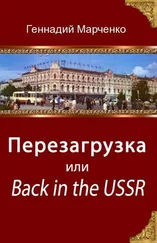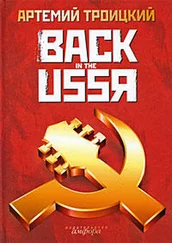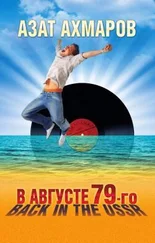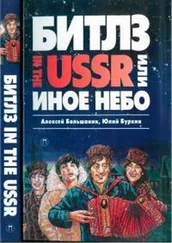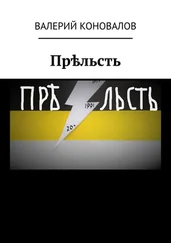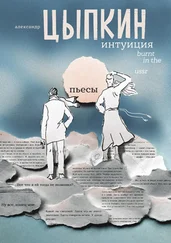As a doctor he understands very well what has happened and knows his end is near. “Ivan Andreyevich,” he whispers to me, “I pray that death may come sooner rather than later. I would like to be done with this life.”
The next day Igor Alexandrovich has another fit, an even more violent one. We make a terrible racket but still they refuse to call an ambulance. After all, it’s not worth going to any trouble over an old beggar.
I do not see Igor Alexandrovich die for I’m released the following day and I take the first train out of Tblisi.
I go west, to the town of Zestafoni, joining a group of tramps who sleep under the carwash by the fruit market. Tramps regard Zestafoni as their capital, perhaps because the local police are lenient and no one has ever been jailed for vagrancy in this town. When the bazaar opens in the morning I earn a few roubles helping farmers carry goods to their stalls.
Most traders sell chacha under the counter. The police take their cut and turn a blind eye. Real chacha is made from grape skins but this is only for personal consumption. The bazaar variety is made from rotten fruit and anything that will ferment. Some brewers fortify their chacha with luminal and calcium carbide.
Near the entrance to the bazaar there are a couple of kiosks which sell odds and ends: envelopes, cosmetics and shoe-laces. They are owned by two Georgians, Archil and Soso. One evening as we sit outside the car-wash Archil comes up with a three-litre cask of chacha. He makes an offer: “I’ll give you this if you pick up Soso’s kiosk during the night and move it further away from the bazaar entrance.”
“What about the cops?”
“I’ll take care of them. You’re not breaking into the kiosk.”
“Okay.”
We find an old telegraph pole, chop it into rollers, and at night move Soso’s kiosk about 100 metres away from the entrance to the bazaar.
The next day Soso approaches us, offering another cask if we’ll roll his kiosk back and drag Archil’s away. This goes on for a week. There’s no enmity between the two men; they’re simply having a joke with each other. They have a sea of chacha and they think up this game out of boredom. Everyone has to find a way of entertaining himself.
There is a tramp in our circle who goes by the name of Lousy Vassya. Lousy Vassya has lived in Zestafoni for years. Everyone knows him; some even pity him. All year round he wraps himself in a dirty woollen coat which has not a single button. He likes to sit in the sun scratching himself. A tall and sturdy peasant, he’s bloated from constant drunkenness and unable to do any form of work. From time to time a woman approaches Vassya and surreptitiously holds out a small medicine bottle. Reaching deep under his armpits he catches a few lice and offers them to the woman at a rouble a piece. His price is as stable as the London stock exchange. Georgian folk medicine recommends live lice as a cure for jaundice. They are stirred into yoghurt and fed unnoticed to the patient.
A few days before Mayday the bazaar director Vakho comes to us. “If you go on the First of May demonstration I’ll give you a barrel of wine.”
Tempted, we get down to business. We find a couple of poles and Vakho gives us three metres of red linen. We boil glue on our bonfire and mix it with chalk to make paint. Then we try to decide on a slogan. I propose Lenin is with us! but the others reject that as too inflammatory. Peace to the World! is too innocuous. Finally we agree on Zestafoni tramps salute the First of May!
Neatly stencilling the slogan, we hide the banner under the carwash and go around to other places in town where tramps congregate. Most of them sleep outside the metal plant where waste pig-iron is dumped. These tramps are distinguished by their burn scars and blackened clothing. Some agree to join us on the parade.

The parade begins with schoolchildren, followed by workers from the metal plant and then other factories and institutions. We infiltrate the contingent of shop workers, waiting till we are about 40 metres from the platform of dignitaries before falling into a group. This way the police have no time to seize us and pull us out.
The bigwigs on the platform know the order of the march so that they can shout appropriate slogans to each section.
“We greet the first of May with the highest respect for study!” they cry to the school children.
“Hoorah!” respond the kids with a half-hearted cheer.
“The world’s youth are the vanguard of Communism!” they shout to the students.
“Hoorah!” cry the students, with even less enthusiasm.
“More goods! Cheaper and better!” they shout to the bazaar traders.
“Hoorah!” they mutter back, no doubt thinking, ‘surely to God not, otherwise how are we going to survive?’
“A healthy mind in a healthy body!” they call to us, for according to their programme we should be doctors.
“Hoorah!” we roar at the top of our lungs, unfurling our banner. The loudest of all is Lousy Vassya. Pulling a hand out of his armpit he waves at the town’s fathers. They stand in shock, rictus grins on their faces. As we march past I catch sight of them whispering to each other. I fear we won’t see that barrel of wine, but I’m wrong. The barrel appears in the evening and we don’t need telling what to do with it.
A few days later the police come to question us. Fortunately they only laugh and decide to overlook the matter. It would be too embarrassing to take us to court.
Not long after the parade Lousy Vassya overhears two Georgians arguing over whether anyone can drink a litre of chacha straight down. Vassya volunteers to try. He has been drunk since morning and wants to show off. He tips the bottle to his lips and swallows the chacha in great gulps. He just manages to draw the back of his hand across his mouth before he falls to the ground, black in the face. By the time someone has called an ambulance he is dead.
Vakho and many bazaar traders donate money to bury Vassya. We hold such a wake that it’s a wonder no one follows Vassya to the next world.
I grow bored of Zestafoni and decide to try my luck in the capital. Perhaps I’ll cut down on my drinking, clean up and find some sort of permanent job.
On New Year’s Day I arrive in Tblisi. This time I know better than to hang around the station so I take a trolleybus into town. Usually I avoid public transport: you can never get your bearings through the filthy windows. I prefer to walk the streets of a strange city to orientate myself. But this morning I’m tired and in urgent need of a hair-of-the-dog.
In the town centre I stop at a beer-stall. It’s crowded and I have to look around for some elbow space. A voice growls: “Over here mate!”
I go across to three men, alkashi by the look of them. The one who hailed me sports a pair of broken glasses and a pointed beard. “Where are you from?” he asks.
“From where the wind blows.”
“And where d’you stay?”
“Where the night finds me.”
“And what do they call you?”
“Ivan.”
“Ivan the what?”
“Just Ivan.”
“Nothing in this world is simple. not even a boil can lance itself. I know Ivan Moneybags and Ivan the Terrible… Which one are you?”
“None. I’m from Chapaevsk.”
“Let me see… the Terrible was the Fourth so that makes you Ivan the Fifth.”
He holds out his hand: “Kalinin.”
“Kalinin who?”
“Kalinin the Chairman of the Supreme Soviet!” he laughs. “Now we must drink to this meeting!”
Читать дальше
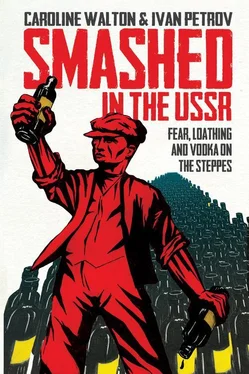

![Геннадий Марченко - Перезагрузка или Back in the Ussr. Книга 1. [СИ]](/books/53319/gennadij-marchenko-perezagruzka-ili-back-in-the-uss-thumb.webp)
